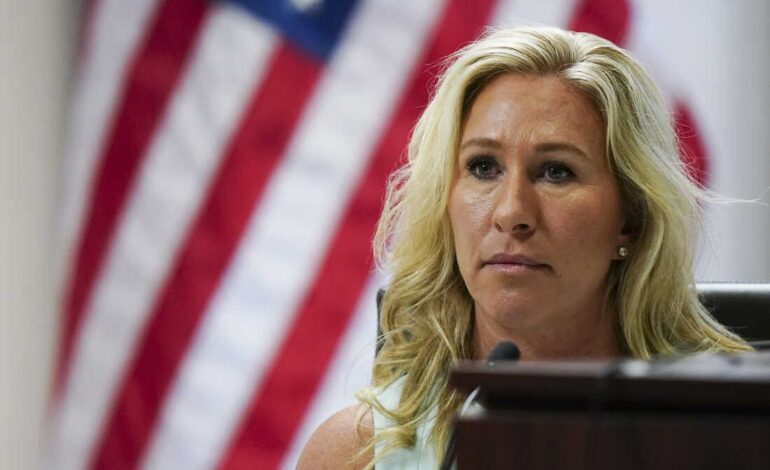Marjorie Taylor Greene’s Ex-Husband Settles Harassment Case with Muslim Students

The recent settlement involving Marjorie Taylor Greene’s ex-husband, Perry Greene, highlights the ongoing issue of public harassment and its ramifications in today’s society. Following a widely publicized incident in which Greene verbally assaulted Muslim college students, his decision to settle with the affected individuals draws attention to the legal and moral responsibilities surrounding public conduct. In an era where the intersection of social media and public discourse has amplified instances of harassment, this case serves as a critical reflection on accountability. Reports indicate that Perry Greene’s settlement comes after he faced backlash for his inflammatory remarks, which many deemed as hate speech. The incident, which occurred during a campus event, sparked outrage, leading to calls for accountability from various advocacy groups.
Research shows that public harassment, particularly against marginalized communities, is on the rise. According to a study by the Pew Research Center, nearly 40% of Americans have experienced online harassment, with a significant percentage reporting that it occurs in public forums as well. This incident underscores the urgency of addressing such behaviors, particularly as they can lead to broader societal implications, including fear and isolation among targeted communities. Furthermore, the settlement amount, though undisclosed, likely reflects the seriousness of the allegations and the potential costs associated with legal proceedings.
The settlement also raises questions about the responsibilities of public figures and their families in fostering a respectful dialogue. Marjorie Taylor Greene, known for her controversial political stance and rhetoric, has often been at the center of heated debates surrounding free speech and hate speech. This incident serves as a reminder that accountability extends beyond the individual to their associates and family members. As public figures navigate the complexities of their platforms, they must remain cognizant of the influence their words and actions have on their supporters and detractors alike.
In light of this incident, there is a growing discourse around the need for educational initiatives aimed at preventing harassment and promoting inclusivity on college campuses. Institutions are increasingly being urged to implement comprehensive training programs focusing on respect and understanding among diverse populations. This incident may serve as a catalyst for such changes, encouraging universities to take a more proactive approach in safeguarding their students against harassment.
As the situation continues to develop, it is essential to remain vigilant about the implications of public harassment and the legal frameworks that govern it. This case not only sheds light on individual accountability but also emphasizes the broader societal change needed to combat discrimination and promote a more inclusive environment.
Stay informed, stay critical, and let’s continue to examine the implications of public discourse in our communities.
Sources: Celebrity Storm and Pew Research Center, The Washington Post, CNN
Attribution: John Bazemore (Creative Commons)




